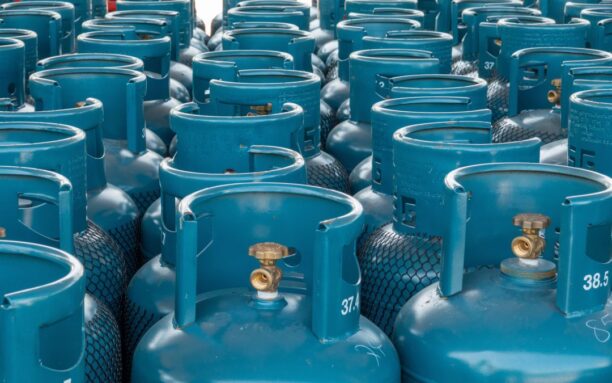Locked, Logged, and Counted: Mastering Cylinder Cage Control

Propane cylinders are a key part of many retail operations, especially when stored in outdoor cages. They’re convenient, accessible, and serve a steady flow of customers. But with that convenience comes multiple risks – cylinder theft, miscounts, and inventory mix-ups can quietly chip away at your profits. If you’re not watching closely, those losses can build up quickly. Rethinking your cylinder control methods can have big payoffs for your company. Here’s how.
Why Cylinder Inventory Slips Through the Cracks
Cylinder cages are often placed in areas with high traffic but limited supervision. If your team isn’t regularly checking inventory, it’s easy for theft, mistaken swaps, or even employee errors to go unnoticed. Sometimes, a lost cylinder isn’t noticed until a customer complains or the next count shows a shortage.
Part of the problem is that cylinder tracking is often done on paper or by memory. If it’s not documented correctly – when cylinders are dropped off, picked up, or swapped out – there’s room for confusion.
Use Clear Counts and Tracking Methods
The first step in strong cylinder management is creating a solid process for counting them. Every drop-off and pick-up should be logged. If you rely on manual tracking, ensure that the process is simple enough that your staff follows it. Too much paperwork can easily lead to skipped steps.
A better option is using digital logs or barcode systems that make tracking quick and easy. These systems help you know exactly what’s in each cage, what was delivered, and what was taken.
Secure the Cages and Limit Access
Locks are only as good as the habits around them. Make sure that your cylinder cages stay locked when not in use and that only trusted team members have keys or access codes. It’s also worth installing motion lights or cameras to discourage after-hours theft.
Additionally, be sure that your cages are anchored in visible, well-lit locations. Hiding them behind buildings or placing them too far from staff sightlines increases risk.
Train All Retail Staff and Partners
Retail locations that carry your cylinders may not treat them with the same care as you would. Their employees may not fully understand how propane cylinders should be tracked, stored, or swapped. It’s your job to teach them.
Take time to train all retail partners on how to count correctly, when to notify you of shortages, and what to do if they suspect theft or tampering. Small changes, like posting a simple reference chart near the cage or having them install cameras, can do much to reduce mistakes and tighten security.
Audit Your Inventory Regularly
Set up a routine schedule to audit each cage. Whether weekly, bi-weekly, or monthly, the goal is consistency. Compare your internal records to what’s actually in the cage. If there’s a difference, don’t just write it off – be sure to dig deeper and find out what went wrong.
The more often you audit, the faster you can detect patterns and problems. Frequent shortfalls may point to theft, mishandling, or a flawed process. When you find the cause early, you can fix it before it becomes costly.
Why This Matters to Your Bottom Line
Cylinder losses don’t just cost you money – they affect trust. When customers arrive and can’t find the tank size they need, they may not return. Retail partners may stop promoting your brand when they feel unsupported or confused.
You protect your inventory, reputation, and revenue stream by keeping tighter control over your cylinder cages. You show both your customers and retail partners that your operation runs with care and precision when you work hard to manage your cages well.
Turning Cages Into Profit Centers
The better you oversee your cylinder cages, the more profitable they become. Treat them like mini retail store locations – each with its own inventory plan, security measures, and staff operating process. That’s how you transform what is often just an afterthought in the propane industry into a steady, secure source of income.














